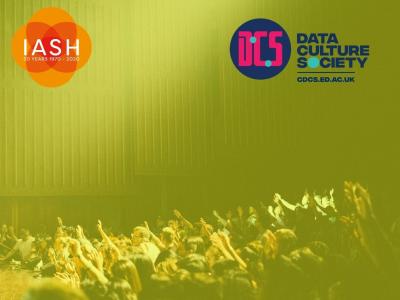
Dr Ben Fletcher-Watson has developed a series of blogposts providing details about how we approach hosting online events. They contain material presented at recent knowledge-sharing events hosted by the Centre for Data, Culture & Society (CDCS) and the Institute for Advanced Studies in the Humanities (IASH), and have been written collaboratively with our CDCS colleague, Dr Lisa Otty.
The first blog explores our experiences of running events during the pandemic, the various platforms available such as Zoom Webinars and Teams, and the challenges such as encouraging people to contribute remotely: https://blogs.ed.ac.uk/cdcs/2021/03/11/hosting-online-events-part-1/
The second blog looks at planning virtual events, and the practicalities of delivery on the day of the event: https://blogs.ed.ac.uk/cdcs/2021/03/25/hosting-online-events-part-2/
The third blog considers accessibility, handling data and making video recordings, and reflects on post-event actions such as harnessing attendee data: https://blogs.ed.ac.uk/cdcs/2021/03/30/hosting-online-events-part-3/
Looking to the future, it is hard to imagine going back to the old-style ways of delivering in-person events. So much has been learned and audiences now expect much greater accessibility from university events.
Hybrid events (especially as we emerge from the pandemic) seem likely to be popular in the short- to medium-term. This could mean recorded sessions offered alongside live presentations, or livestreaming our sessions to online audiences. New technologies such as the Meeting Owl will make it easier to bring audiences together online and in real spaces simultaneously. As we reassess our travel plans in light of the university’s environmental policies, flying to a conference on the other side of the world to give a 15-minute paper may now seem bizarre, and it will become much easier to involve scholars from the Global South who can now contribute digitally. Perhaps our travel budgets will now be redirected to support early career scholars and non-salaried / independent researchers. It’s up to all of us to seek out and embrace new ways of disseminating knowledge, breaking down barriers to access, and welcoming those voices which have been ignored.
